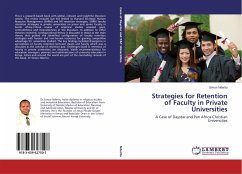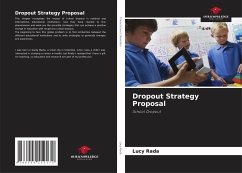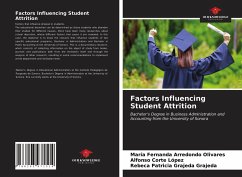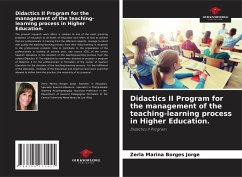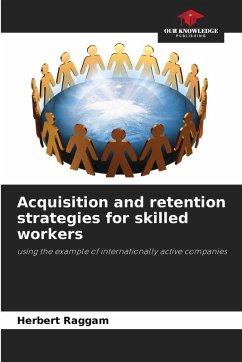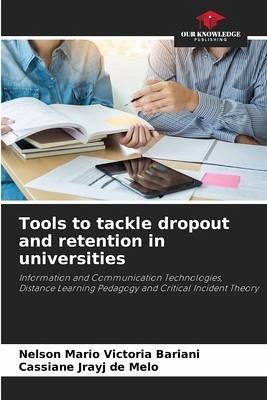
Tools to tackle dropout and retention in universities
Information and Communication Technologies, Distance Learning Pedagogy and Critical Incident Theory
Versandkostenfrei!
Versandfertig in 6-10 Tagen
40,99 €
inkl. MwSt.

PAYBACK Punkte
20 °P sammeln!
One of the most important and most obvious indicators related to the health of the academic environment is the number of students who continue to advance in the course on a regular basis. Every time any student drops out (dropout), this situation is indicating the existence of some kind of disruption or maladjustment that has caused the student to move away from his or her goals of advancing in a specific course. The motivations are not necessarily negative, but they cause disquiet in the academic environment. The professor as well as colleagues and the administrative system regard that loss w...
One of the most important and most obvious indicators related to the health of the academic environment is the number of students who continue to advance in the course on a regular basis. Every time any student drops out (dropout), this situation is indicating the existence of some kind of disruption or maladjustment that has caused the student to move away from his or her goals of advancing in a specific course. The motivations are not necessarily negative, but they cause disquiet in the academic environment. The professor as well as colleagues and the administrative system regard that loss with a certain amount of regret. It is clear that there is a worldwide phenomenon of change in people's interest in study. The phenomenon is characterized by an increase in dropouts coupled with an increase in failure in basic subjects (retention), and a lower demand for existing places (rejection). This situation is putting the university system in check, raising questions about the viability of maintaining courses with high dropouts and low demand. This work analyzes this phenomenon and proposes some actions based on the experiences and testimonies collected and organized by the authors over more than 30 years.



